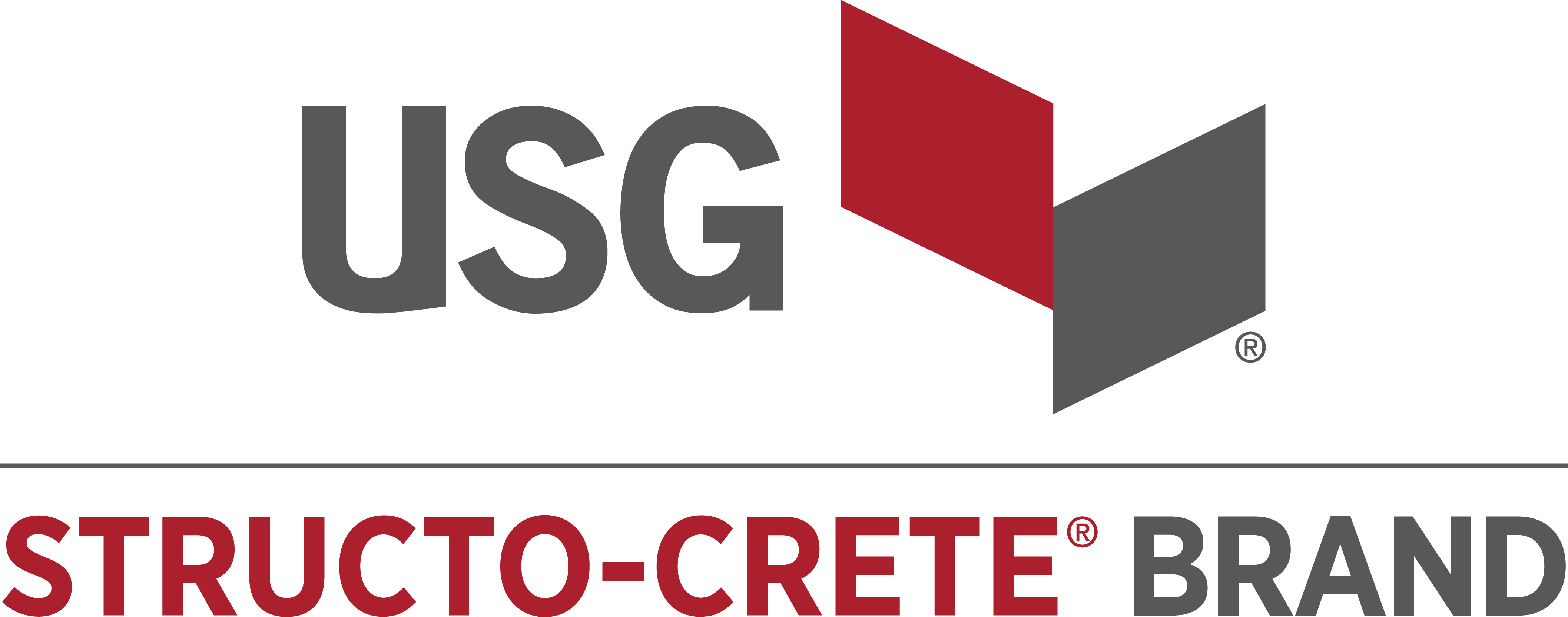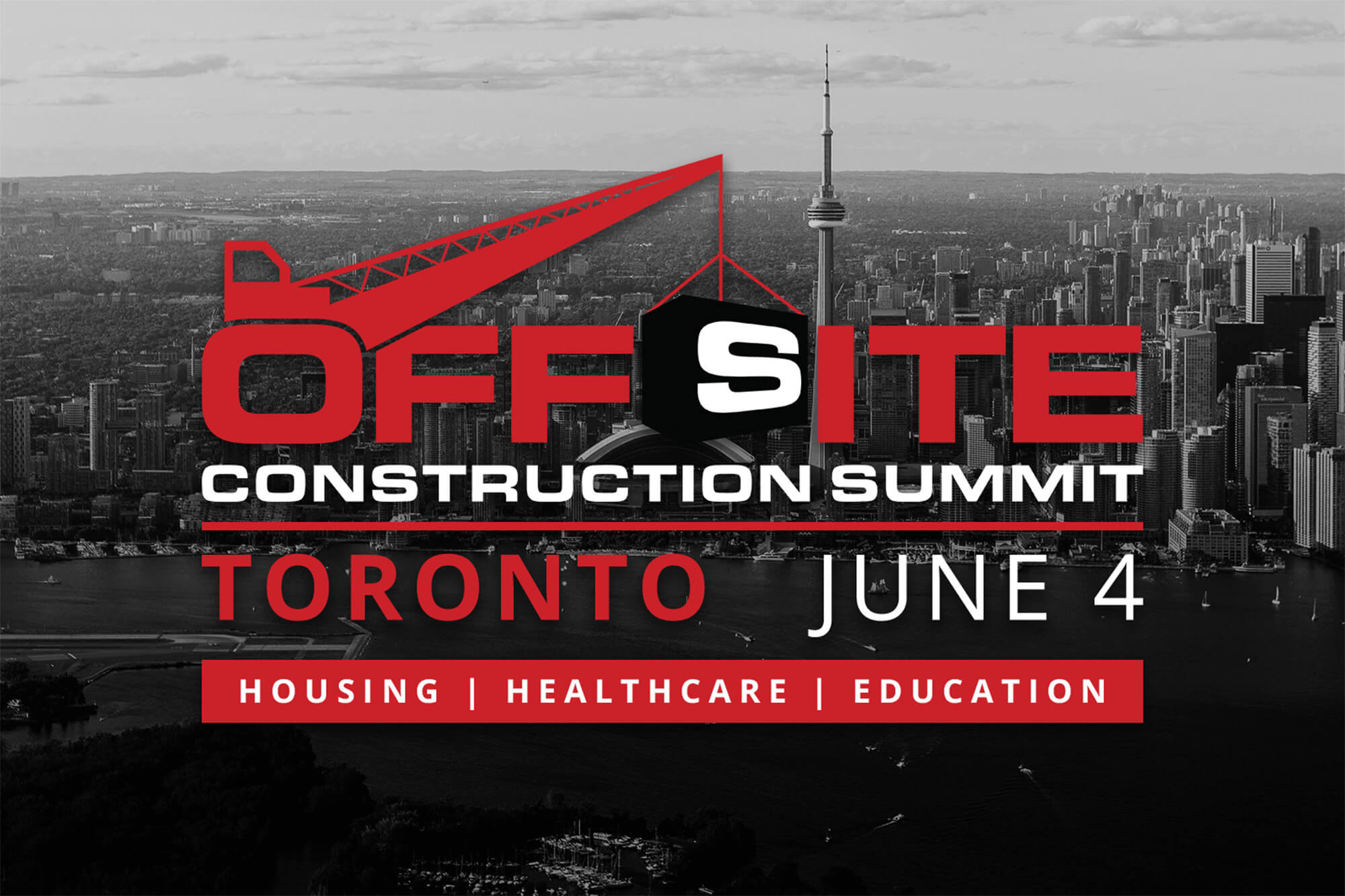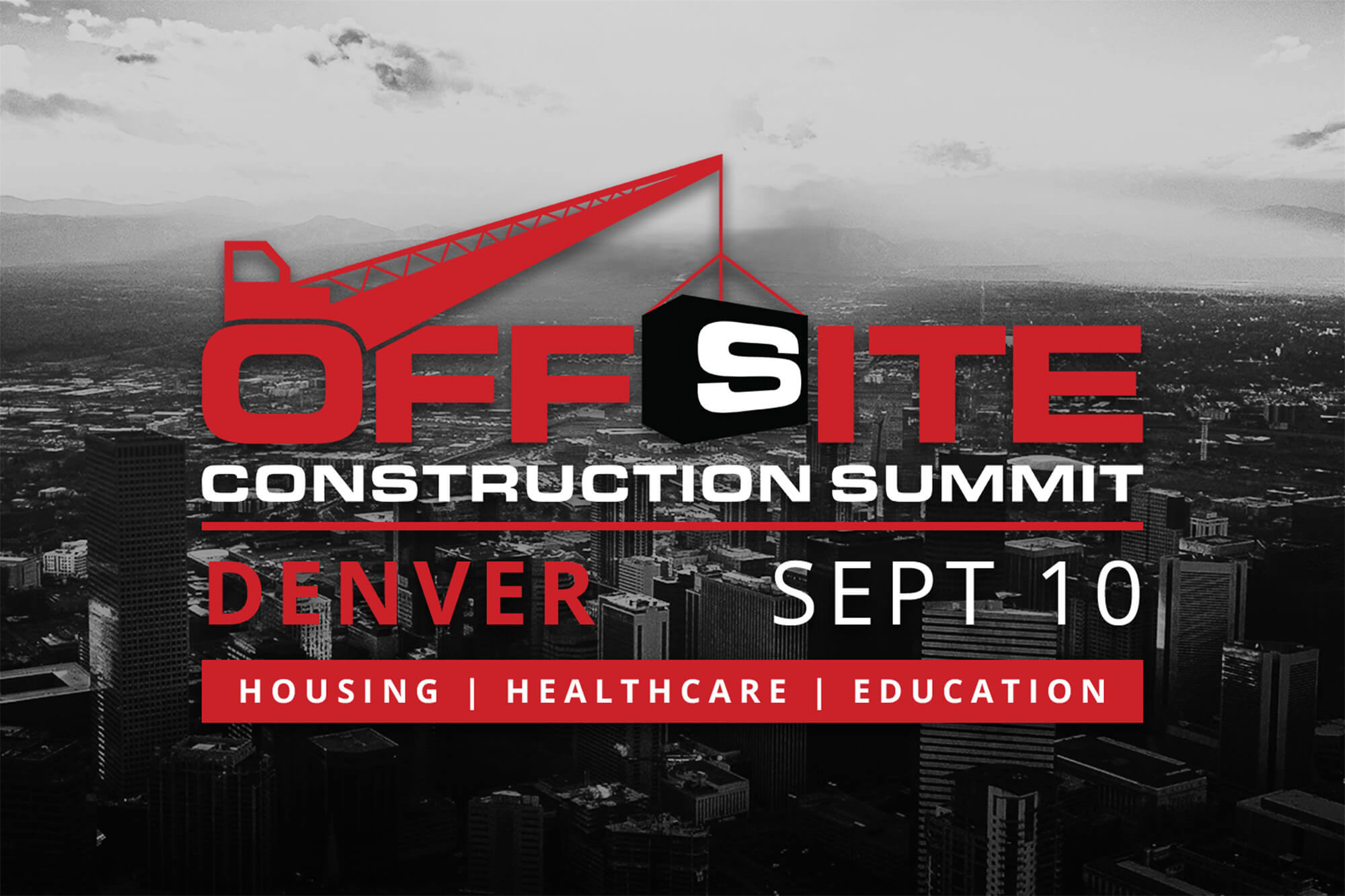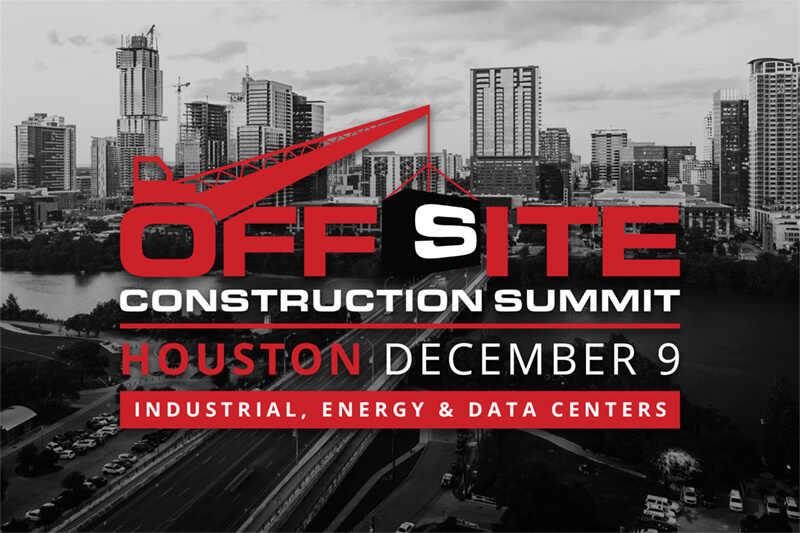
Creating Resilient and Affordable Housing Communities Using Modular Construction
An interview with Wanona Satcher, founder and CEO of Mākhers Studio, LLC.
Wanona Satcher, CEO and founder of Altanta-based Mākhers Studio, talks with Tom Hardiman about the challenges of providing safe, affordable modular housing within the confines of existing government frameworks and the new and creative solutions her team is working on.
Interview transcript
Tom Hardiman
I'd like to thank today's sponsor for Offsite Insights, USG Structo-Crete Brand structural panels are noncombustible mold moisture termite resistant, dimensionally stable panels for use and sub floor, roof deck or foundation wall assemblies. Structo-Crete Brand structural panels meet the full criteria of ASTM E 136 for use in all types of noncombustible construction. Numerous one, two and three hour fire designs are available for modular panelized and conventionally constructed buildings to meet virtually any application. The panels are easily cut with standard framing tools, rapidly applied using mechanical fasteners and require no adhesive free installation. To learn more, visit www.usg.com/structocrete.
Hello and welcome to another edition of Offsite Insights. I'm Tom Hardiman and I'm joined today by Wanona Satcher, CEO and founder of Mākhers Studio, LLC.
Wanona, how are you doing today?
Wanona Satcher
I'm great. How are you, Tom?
Tom Hardiman
I'm doing just great. Did I get that right, Mākhers Studio?
Wanona Satcher
You did I appreciate that. Yep. That's what we're called. We are Mākhers.
Tom Hardiman
You are Mākhers. Absolutely. Well, thanks for being on the show today. Before we jump in to what Mākhers is doing, and all the great things happening with you, why don’t you tell us a little bit about your background, who you are and how you ended up in this modular and offsite space.
Wanona Satcher
Sure. So, I'm originally from Atlanta, Georgia, which is where we're headquartered now, Mākhers Studio. Academically, professionally, my background has been in landscape architecture, city planning, urban design. So really looking at the built environment as an ecosystem. My heart has always been though in the urban design space. Then of course, getting a graduate degree from Auburn, both undergrad and grad from Auburn University's College of Architecture, Design and Construction. I learned a lot about the building envelope. It's one thing to design and have ideas about what spaces should be how people should experience the space was another thing to have to build that within the confinement of landing, stoning building requirements. So, like typical design students, I spent my first years working for design firms that I think my best experience here was in Durham, North Carolina, which is really where I bloomed as far as my career and worked for a couple of firms in Research Triangle Park. The last firm I worked at was where I met my husband, who also was a landscape architect, builder and as our director of operations now.
Teamwork does work as long as you respect everyone's roles. It works very well, but like a lot of people, especially during the recession, laid off and ended up doing a lot of community work. My first startup, which was really a consulting company to support neighborhood development goals and ended up being picked up and hired by the city of Durham. So that was my first and last government, public sector, salaried work. It was my last nine to five jobs before becoming a true entrepreneur, if you will.
I will say that government, unfortunately, isn't the most innovative space. So it was very difficult to really expand on a lot of ideas around community development and creative community development, equity, equitable development, but it was a great learning experience, because I got to work with fair housing, the Fair Housing Department division within our department, engagement, code enforcement, I mean, really good, really very interesting mix of all of the different departments, planning departments, that affects how we live, work and play. So really got excited about fair, affordable housing and fair housing.
Well, throughout this process, I started an innovation lab with the city and started working with a lot of techies, neighborhood groups, but also entrepreneurs. These entrepreneurs were food entrepreneurs and affordable housing advocates. We started having conservations conversations around how our cities are becoming more expensive and less equitable. For a variety of people, families and the workforce to be able to find a safe, healthy and adequate housing that could be built efficiently.
So started back around 2013 getting very interested in modular construction, but also with a sustainability component of recycling. That's where shipping containers came from and the idea that we could recycle an existing material and use that as a more efficient and quicker way to provide affordable real estate. Whether it's a restaurant for a startup foodie, or a small tech company, but in this case housing. So, I lasted four and a half years, got gray hair, working for the city, and knew I was onto something, but also was missing home because Atlanta is a great spot to be able to test ideas, and pilot ideas around affordability. It's a large city, but it's also a small city compared to other cities. So resigned from the city government in 2016, moved back home to Atlanta and we started Mākhers Studio in 2017. Since Mākhers Studio is a for-profit, we consider ourselves a social enterprise, but as a for-profit, green design, builder manufacturing company, we are a very small firm, it's just has two of us, my husband and myself.
We also have an advisor, who consults with us on the numbers portion of how we build and we're talking to potential real estate developers who want support in how the shipping container modular construction, how does that fit in with our bottom line. So, breed our advisors support systems that Kevin's my husband, but we do also manage, you know, six to 10 subcontractors, all the tradesmen and women, we need to create our spaces successfully. So, we've been in business since 2017. We have about six of our past market. So, we do know how to go to market, but it has been a very, very, very challenging road. And Tony, when I talked about this, before the call on when it comes to how do we not just break through the using what we do to break through, you know, opportunities to create around land use and zoning to allow for how we build but also with breaking through various departments because of the material with which we build with.
And so, there's different opportunities for modular construction, we don't need everybody at their table. At the table, our focus is affordable housing, because it is a global crisis. We believe that modular construction is a scalable, and affordable remedy.
Tom Hardiman
I imagine that extensive background, working with the government, working with all these agencies, understanding how that works, would be a significant benefit when you're on this side of the table as the entrepreneur trying to navigate that process because that's, you're right, that is that can be time consuming and pretty frustrating process to, to navigate.
So, you mentioned social enterprise, on your website, you call yourself a social entrepreneur. I'm a political junkie, among other things. In this toxic world of politics, it's like you're either a socialist, or you're an entrepreneur, and you put them together, like, what does social entrepreneur mean?
Wanona Satcher
For me, it really is about the ability to balance generating revenue stainable cash flow with making an impact, and that we can we believe that you can quantify the bottom line, but you can also quantify the quality of what you do and how that impacts the people around you in the communities around you and also what our values are. Even though we are a business and we do want to make sure that we make a profit. But end of the day, the priority is how can we best do that? By making the world a better place, that everything that we think makes the world a better place, it's going to help us stay afloat as a business. So, part of it is being very focused about what is your role in all of this? For us, it's how can you utilize design and construction as a social conversation? Usually, you don't hear it that way, but we do know that conventional construction is very disruptive, it can be and very exploitative.
One of the reasons I love modular construction so much is it starts to lessen the amount of extraction that we pull from the environment. It's also better when it comes to in our mind, what we've seen and how we build it better for those that live in our spaces to have a safer and more structurally sound home. The other part of for us as far as social impact work is workforce development. We talk a lot about affordable housing and housing in general is a very political conversation for a lot of reasons, especially around affordability. For us, it's also about taking a workforce development approach. If you can't sustain living in affordable space, whether it was affordable or not, then you're right back where you started.
So, part of our value system with Mākhers Studio is to hire as many locally trained tradesmen and women as well as refugees and immigrants to be able to support what we do as livable wage to build the change that they want to see. So, there's various different components to social impact as how we define it. Mākhers Studio is how we build, is what we build as for whom we build. But it's also who helps us build it. And then how does all of that work at the end of the day to be able to scale our impact and make money? We are a for profit business, we're not a charity.
Tom Hardiman 10:18
You got to have more revenue coming in than going out. That's great and that's awesome. You had another term on your website, I wanted to ask you about prozilient communities. I immediately think of resilient communities. Tell me what you mean by prozilient communities?
Wanona Satcher
Yeah, we do talk a lot, Tom, about resilient communities. If this happened, then this person is resilient or if this happened, this community is resilient, and they made it through this storm. They rebuilt their neighborhood again. My grandparents used to say that there's nothing new under the sun, right? Like, we know what causes a lot of our environmental issues, as well as other social determinants of health and environmental injustice.
My position is, since we know all of these things, how can we be better at proactively designing spaces and designing structures, so that we don't continue to have to say, okay, there's another storm that knocked down this building, it wasn't built well, but this person made it out they're resilient. They don't want to be resilient; they want to live safely, they don't want to have to start all over. It's just costly and one of the things about working in government I realized is government is as efficient as it could be, and I like the idea of it. It is very inefficient when it comes to solving problems because everything is always about a reaction.
I was talking to an engineer a couple of weeks ago. We were talking about our work, and he said, you know, one of the things, one of the problems is that you don't get rewarded for being proactive. You usually get rewarded for being reactive. At Mākhers Studio, we don't care as much about accolades as we do about how can we proactively solve problems? So that's where prozilient comes from.
Tom Hardiman
Well, that's excellent. You hit on one of my pet peeves with the government and FEMA in particular. There are just so many better solutions out there and it seems to be we're always caught off guard when there's a big disaster. People write housing and they immediately send RVs and backward housing into tornado prone areas. The numbers we heard are staggering. Somewhere in the neighborhood of 150 to $200,000 per occupant for 18 months. We said, well, what happens after 18 months? Well, we take that manufactured housing unit back or we sell it to them. We're like, you can build them a house.
Wanona Satcher
That's right. It is the most wasteful way of doing business. I think that's where if you're fortunate to have the ability to collaborate with private sector entrepreneurs like us, who really care about what does happen after the storm, and after FEMA says, okay, we're done, we're going to ship these out or we might sell it to the customer if they can afford it, which they probably can't. Then the land is not affordable, and especially in cities. So that's another problem. Of course, we have a situation where because of shipping containers right now, conventional banks are still underwriting what we do as a modular solution. They’re just not understanding that you have to innovate on that side of things for people to be able to finance what we do. It is amazing how it's such a threat to try something new versus having to still put money towards some things that don't work. It just doesn't make any sense to me.
Tom Hardiman
You just hit on the whole last 100 years of the construction industry; I think. Status quo is so hard to overcome, and we deal with that daily. We know how to build things. This is the way we do it. Everything about construction was written for an onsite world. People like us are trying to go out there and educate code officials, lenders, owners and developers and say, there's a better way.
Wanona Satcher
Exactly. There's a better way and we need everybody like we're not interested in doing this by ourselves. We don't have the capacity to finance projects, it'd be great if we did, but that's what you're there for. Why am I having to do it?
Tom Hardiman
Modular and offsite is gaining market share and popularity. I think there's a little bit of reaction from, let's call them the status quo group to push us back. There's so much infrastructure to be built, that everyone can be busy. So, we're not trying to take work away from anyone. There's plenty of housing to be built.
Wanona Satcher
Exactly. Yeah, there's room for everybody. That's what I don't get. There's room for everybody, but there's such a demand and the demand isn't something that's just made up. It's real. So, there's no reason why we can't solve that problem.
Tom Hardiman
I agree. We’re based here in Virginia and the state has taken a pretty aggressive approach to housing and recently have just said, we want an all of the above approach. We want shipping containers, tiny homes, manufactured modular panelized. Anything that can help us with housing we're interested in, so we'd like to see more states embrace that kind of attitude.
Wanona Satcher
Yes. Well, Tom, as an advocacy organization, and more of the work you're doing, we wouldn't be able to get as far as we've gotten without your support and work. So, advocacy is so critical and the more people like us that do this work that you advocate for them, it starts to show. The funny thing is, as far as community engagement, I used to do that when I worked for city government, we haven't had a problem engaging the individuals who need access to the housing, who need to have affordability as far as housing and workspaces. It's those that make the decisions and the gatekeepers that have the problem.
Tom Hardiman
Yeah, because it's different and they might have to learn something new. So, what kind of cool projects or initiatives are you working on these days?
Wanona Satcher
Yeah, we got a lot of things going. You asked me about being a social enterprise or a social entrepreneur. Part of that is also the material which we build with. So, we are very interested in the climate conversations because we obviously affect that at how we build housing or whatever the real estate product is. We want to be better at how we build and really looking at the materials with which we build with. Even though right now we recycle shipping containers and recycling is critical when you're talking about circular economy, social impact, climate tech, the climate space, and the construction industry. The conventional construction industry is the second worst carbon emissive industry in the world. As an example, New York represents I believe about 40% of carbon emissions. What we're saying is modular construction supports a better climate-controlled conversations around the future of green building and green construction.
We recently were accepted into an accelerator for clean tech companies. The construction industry, including the modular industry are never really looked at as tech companies. Even though you see a building everywhere you go. We probably should be some of the most funded companies out there, but luckily, we were accepted to the accelerator. What we're looking at doing is sort of moving along the supply chain of materials. So right now, we take an existing container, we retrofit it into an energy efficient home, backyard unit or ADU. We hope to soon do multifamily developments.
In the meantime, as we have those clients, we are looking to develop our own frame from the ground up where it would include our steel that we use, recycled steel material with a CLT cross laminated timber but a small amount of that to see if we can build even stronger structures but build it more locally, and be able to source our products regionally locally versus China. We also want to keep keeping as many jobs here so just testing more materials and more opportunities to be even more green than what we are to lessen our carbon footprint, to hire more people to build locally, to ship out across the country and hopefully abroad.
So those are some of the exciting things that as far as the working in the business that we're working on now. We also have a current client where we're doing our first shipping container kitchen space as an incubator for small food businesses. I think a lot of it, though, is taking a look back as an entrepreneur and working on the business, understanding who really is our customer segment? Where can we make the most impact especially for the modular space? How can we support the modular community by doing the best quality work that we can? We're counting the balance of both running a day-to-day business we're building but we're also working on the business and getting better at positioning ourselves for larger clients who maybe we could be a supplier for their housing needs versus stick built conventional onsite construction.
We also just acquired our first micro manufacturing facility in Atlanta in October and realized already that it's too small. We're outgrowing it already and a lot of that was just through the process of going through the quality control manual, understanding operations, and how would our company fit. We are literally negotiating this week and we're this close to getting a larger space here in the Atlanta metro area to be able to support building a lot more at one time. To answer the call to housing needs at a greater pace, but still with quality work. So got a lot of things going on. Also, part of an accelerator for specifically women and minority owned companies in the construction industry. I'm pretty sure I'm the only modular building company in the conversation just listening to some of the comments from the other contractors and GCs like, yeah, I'm the only offsite builder. I can tell just how people talk about materials, making money, scheduling, and bidding. Those things don’t always apply to how we build as far as margin because we're offsite. I think that there's some merit to that. We are more efficient.
Tom Hardiman
There is and I'm sure you're doing a great job representing the offsite industry. There's just so much education and outreach yet to be done. I'm hopeful that more owners and developers and government agencies are going to consider sustainability in their decision-making process. We're seeing it more than 10 years ago, for example, because I know we can win that argument all day long.
Wanona Satcher
The funny thing, Tom, the reason I mentioned New York as a metric is because the plaintext accelerator that I'm part of, is based in New York. What I had not thought about as a customer opportunity was that not only do they need, obviously new construction for affordable housing, modular is critical especially in tight cities like New York, you can't just build out. You to build up and module is perfect for that. One of their key sectors is for energy retrofits. How do we retrofit existing buildings? Modular is the answer. You can build modules for the mechanics that you need to better your HVAC, then cleaning and cooling in these modules. Or you need modular rooms that we can put in. You can't mobilize effectively, efficiently and affordably with conventional onsite construction the way you could modular.
Tom Hardiman
I'm going to have to get you on our government affairs committee. We did not plan this, but we talked about this is a perfect fit for needs for places like New York City and they just passed a bill that would impose more regulations on modular construction in New York City.
Wanona Satcher
I don’t understand that.
Tom Hardiman
Are your leaders talking to one another?
Wanona Satcher
No.
Tom Hardiman
This will be dated by the time it comes down. We're trying to get the Governor to veto that bill, because it's going to hurt housing in New York City.
Wanona Satcher
That's so weird because the conversations I've been having in New York City with local sort of quasi-governmental agencies that fund technologies and solutions around energy efficiency and construction. They're excited about it.
Tom Hardiman
So are the affordable housing groups in New York. They’re with us, it just happens to be the Legislative Assembly in New York doesn’t quite get it. Anyway, we got a little deep on that but it's all about this like your grandmother said, there's nothing new under the sun. We know the answers and we should be part of the solutions. We just seem to have policymakers that either won't get out of our way or just keep putting barriers in our way. Protect the status quo, I guess, but we'll get there.
Wanona Satcher
My position is, we don't have that much time. Within the political space, my attitude is, you can't complain about the number of tents under our highways, the increasing number of tents, the decreasing amount of extended stay hotels, when people can't find workforce housing. We're not even talking about very low-income needs, I'm just talking about workforce development housing for teachers and, firefighters, and police officers. They keep providing reports, how many more reports do we need to show the same thing? You need to fund us to build it and you have the money. So that is not even an issue. You know, the money is there.
Tom Hardiman
I hear you. All these things are interconnected and I'm hoping some of our policymakers watching this will reach out to us and say, how can we work with you guys on these things?
Wanona Satcher
Exactly. Well, I’m here to help in any way that we can. I have been learning the more collaborations that I can support and participate in, the easier it is for us to crack that code. We've been talking to renewable battery companies about partnering with creating offsite modular housing. I'm sorry, not offsite, off grid modular housing or solar run-on modular housing. There's more money in that versus the building space but I can use that as a way to collaborate and combine those two technologies. Then at least that's an opportunity to just get in the door.
Tom Hardiman
What a great idea. I just immediately went to kind of disaster relief. Again, if you have these off the grid, self-supporting self sustaining modules, you can deploy hundreds of those to a region or 1000s. I just immediately went to Ukraine and all those displaced people in Ukraine. Four million people, where are we putting them?
Wanona Satcher
Yep. Well, and then going back to this idea of these spaces being modular, it's easier to ship them already built, overseas ready to go. It’s not rocket science. Either you want to solve the problem, or you don't. We waste so much money to not solve the problem.
Tom Hardiman
You either want to solve the problem, or you don't.
Wanona Satcher
There's no gray area in that. They always talk about data. Data shows not solving the problem because it's more costly for everybody. It's not going to go away for all taxpayers. So, if you don't think it affects you, it does. You know, it really does.
Tom Hardiman
Well, the problem is not going away, but unfortunately we're going to have to go away. We're going to have to wrap up this episode. Wanona Satcher, CEO and Founder of Mākhers Studio LLC in Atlanta, Georgia.
By the way, named in 2020, Inc magazine's 100, top female entrepreneurs. I think I see why. You're out there trying to change the world for the better. Keep up the good work and I appreciate you being with us here today.
Wanona Satcher
We appreciate the invitation and Tom anytime. Thank you so much for advocating for us.
Tom Hardiman
Thank you for making my job easier by doing such great work. So, we appreciate it and thank our listeners for listening to another episode of Offsite Insights. Stay tuned for our next episode. Thank you, Wanona.
Upcoming 2026 Offsite Construction Network Events
Join the leading companies and professionals from across the offsite construction industry at each of this year's Offsite Construction Network events. With summits and expos taking place across North America in 2026, it's never been easier to connect with and learn from offsite construction manufacturers, designers, builders, and suppliers from the United States and Canada.
Subscribe today to get the latest updates on future events from the Offsite Construction Network.
